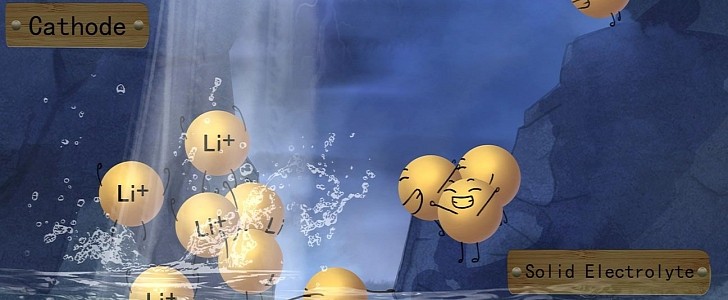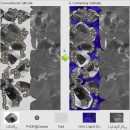Lithium-ion batteries power almost every device in our lives, from the watches on our wrists to the houses we live in. Electric vehicles have pushed battery development to a neck-breaking pace, leading to new chemistries with increased energy density. Lithium-metal solid-state batteries are the latest development of the classic Li-ion battery, but there are still technical issues to overcome.
The current Li-ion batteries use liquid electrolytes that are highly flammable, posing a safety hazard. When things go wrong, they go catastrophically wrong, as we’ve seen in the case of the Chevrolet Bolt. That’s why people have been trying to develop solid-state batteries that use a more stable solid electrolyte.
As promising as solid-state batteries are, they are still a long way from commercial production. The most important problem is achieving a good contact between electrodes and solid electrolytes. Surface imperfections on either of them lead to an increase in interfacial resistance, affecting battery performance. Work has been concentrated on finding the perfect solid electrolyte, but cathode design remains an open issue.
A team from the Tokyo Metropolitan University has delved into this matter and has tried new ways of improving the contact between the cathode and solid-state electrolyte. Their latest discovery is a quasi-solid-state lithium cobalt oxide (LCO) cathode which contains a room-temperature ionic liquid. Ioniq liquids contain positive and negative ions and can fill any tiny voids at the cathode/solid electrolyte interface. Thus the resistance significantly decreases improving performance.
The ionic liquid developed at the Tokyo Metropolitan University is not only ionically conductive but also non-volatile and non-flammable, making it ideal for use in batteries. The only problem that still needs to be addressed is its rapid degradation. The prototype battery retains an 80% capacity after 100 charge/discharge cycles at a temperature of 60 C (140 F), which is not very impressive for automotive applications.
The team is confident that this can be further improved by finding a better ionic liquid that doesn’t degrade as easily. Tweaking the ionic liquid formula can bring benefits and make solid-state batteries finally viable.
As promising as solid-state batteries are, they are still a long way from commercial production. The most important problem is achieving a good contact between electrodes and solid electrolytes. Surface imperfections on either of them lead to an increase in interfacial resistance, affecting battery performance. Work has been concentrated on finding the perfect solid electrolyte, but cathode design remains an open issue.
A team from the Tokyo Metropolitan University has delved into this matter and has tried new ways of improving the contact between the cathode and solid-state electrolyte. Their latest discovery is a quasi-solid-state lithium cobalt oxide (LCO) cathode which contains a room-temperature ionic liquid. Ioniq liquids contain positive and negative ions and can fill any tiny voids at the cathode/solid electrolyte interface. Thus the resistance significantly decreases improving performance.
The ionic liquid developed at the Tokyo Metropolitan University is not only ionically conductive but also non-volatile and non-flammable, making it ideal for use in batteries. The only problem that still needs to be addressed is its rapid degradation. The prototype battery retains an 80% capacity after 100 charge/discharge cycles at a temperature of 60 C (140 F), which is not very impressive for automotive applications.
The team is confident that this can be further improved by finding a better ionic liquid that doesn’t degrade as easily. Tweaking the ionic liquid formula can bring benefits and make solid-state batteries finally viable.






